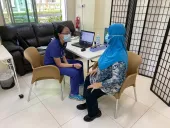
China's retail pharmacies could bow out to GPO drug prices
The State Medical Insurance Administration is set to roll out its new NRDL and price negotiation list in June.
Drugs sold in medical insurance designated medical institutions or retail pharmacies may have to follow the Chinese government’s Group Purchasing Organisation (GPO) prices as authorities are keen to step up the scale of the programme to include more drugs and cities in Q2 2019, a report by UOB Kay Hian (UOBKH) revealed.
The GPO programme is a volume-based drug procurement scheme implemented on December 2018 in 11 pilot cities, such as Beijing, Shanghai and Guangzhou, for 31 frequently used generic drugs. On average, these cities account for 30% of China’s total drug sales, a separate report by Fitch Solutions noted.
Beyond the 11 pilot cities, Qinghai became the second province after Fujian to adopt the GPO drug prices. UOBKH analysts Carol Dou and Michael Cheung forecast that the GPO spillover will take place at the national level.
“Companies are cutting prices to retain market share outside of the 11 cities. We expect more pressure on the industry’s revenue growth and margins from Q2 2019,” they said, adding that Shandong has announced the inclusion of private medical institutions and retail pharmacies in its centralised procurement programme.
Also read: How will China's new drug prescription policy affect pharma players?
China’s State Medical Insurance Administration (SMIA) is also expected to roll out a new 2019 National Medical Reimbursement Drug List (NRDL) Adjustment work plan in June, as well as a list of drugs for price negotiation in August. The SMIA will reportedly include national essential drugs, oncology drugs, paediatric and emergency medicine, as well as drugs for treatment of rare diseases and chronic diseases in the new NRDL.

According to Dou and Cheung, the new NRDL and price negotiation list will offer market expansion opportunities for innovative products, with companies such as Sino Biopharm, CSPC Pharmaceutical Group, Ascletis, Junshi and Innovent poised to largely benefit.
“Most of them are focusing on innovation. The number of drug applications rose 53.7% YoY to 7,395 in 2018. The research and development (R&D) expenses of the top 100 healthcare companies totalled $7.69b (RMB53.11b) in 2018, surging 52.8% YoY from $5.46b (RMB37.75m) in 2017,” they highlighted.
Also read: Chinese efforts to reduce drug prices may trigger competitive market share shake-up
Meanwhile, over 130 drugs have passed bioequivalence (BE) tests and are qualified for the second round of GPO. Dou and Cheung expect intense competition for drugs, with two or more BE qualifiers in the GPO.
“With several drugs likely to be included in the next GPO, the common generics of CSPC and HEC may be significantly impacted, but Sino Biopharm should see limited impact. Our data also shows that the number of BE applications is lower than a few months ago. This may indicate that companies have become more strategic and selective in doing BE tests,” they explained.













 Advertise
Advertise













